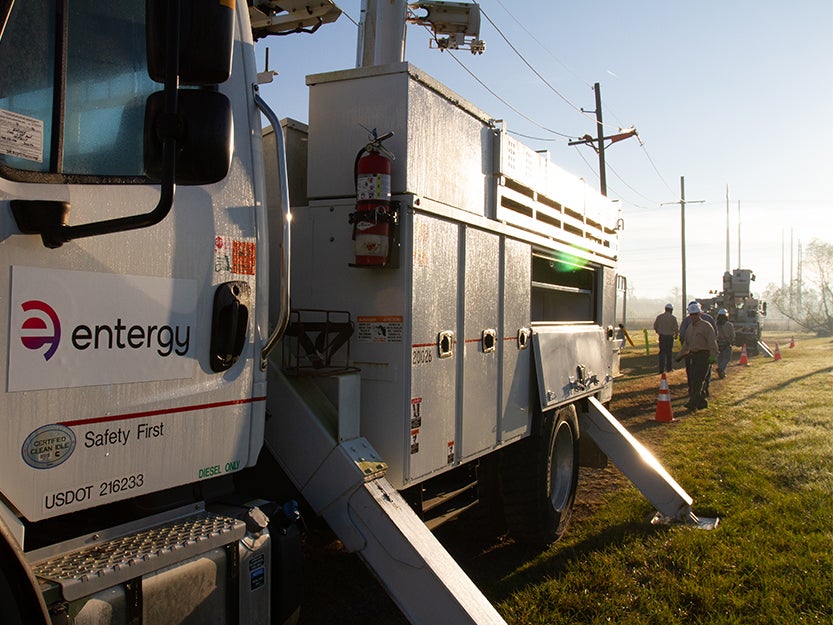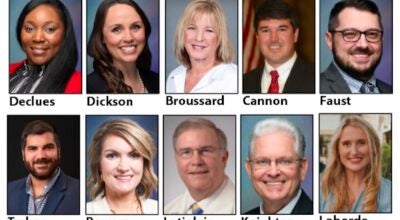Sowela boasts highest enrollment in school history
Published 8:01 pm Friday, September 13, 2013
Sowela Technical Community College announced that its enrollment for the fall 2013 semester was the highest in the school’s 75-year history.
More than 3,300 students signed up for fall classes, a 22 percent jump from a year ago, said Neil Aspinwall, Sowela’s chancellor.
Programs with the largest enrollment figures included process technology, industrial instrumentation, and Sowela’s dual enrollment program for high school students who take college courses. General studies courses were also popular among students this fall.
“Being a comprehensive community college, the student can now come here and take those general education courses and then transfer to McNeese or some other four-year institution,” Aspinwall said. “One of the things that is appealing to students coming to Sowela, is that our tuition rate is lower than it is at four-year schools. You can take classes here at a cheaper rate before you transfer to a four-year college.”
Enrollment in Sowela’s short-term, non-credit programs also increased. Among the most popular of these programs this fall were welding, machining and pipe fitting.
Aspinwall said the increase in Sowela’s short-term, non-credit programs is a direct response to the coming industrial expansion that will take place in Southwest Louisiana in the next five years.
Sowela’s 11-week welding program costs students about $1,800. Once students receive their AWS certification, they can expect to earn between $40,000 and $60,000, Aspinwall said.
“That’s a pretty good investment,” he added. “Individuals want to take advantage of that kind of training and get those good-paying jobs.”
Sowela’s short-term, non-credit programs run from four to 16 weeks. At the end of a short-term program, Aspinwall said, students are certified in a particular field.
“These certifications give us a way to prove to the state that students are completing these programs and are getting certified,” he added.
Aspinwall said this semester’s 22 percent enrollment spike is proof that the school’s message of providing skilled training that leads to employment is getting out to students. He added that programs such as technology and industrial instrumentation are the fields in which companies like Sasol, Cheniere Energy and G2X will be hiring workers in the future.
Sowela is developing short-term, non-credit programs in construction. Aspinwall, however, said Sowela has “a way to go” in promoting these programs to prospective students.
Many of Sowela’s short-term, non-credit programs are designed to get students out into the job market as quickly as possible. They are not, however, covered by financial aid, which can shrink enrollment, Aspinwall said.
“The majority of our students work,” he said. “The average age is between 25 and 26 years old and many of them can’t afford, if they’re working a day job, to come to school or come at night when they don’t have the funds.”
Aspinwall said Sowela has partnered with companies like CapitalOne and AT&T to provide scholarship funds for students enrolling in short-term, non-credit classes. The school has also reached out to employment officials at local plants to find out the skills people need to get an entry-level position.
“The state has identified the construction jobs that are going to be in demand,” he said. “What we’ve done in our area is target ones like machinists, pipe fitting, electrician, residential construction and scaffolding.”
Aspinwall added that Sowela’s faculty and campus are ready to handle this semester’s enrollment spike. The school recently opened a 45,000-square-foot arts and humanities building as well as a new process technology building. In February, Sowela will open a new 35,000-square-foot allied health and nursing facility.
The state has committed $20 million for a new regional training facility at Sowela, a project that is in the planning stages.
“We hope that sometime in early 2014 we’ll break ground,” Aspinwall said. “Our aggressive schedule looks to have it up and running in 12 months.”
Sowela is also planning to replace its Jennings campus with a new $10 million facility and a new student services building.
Aspinwall said Sowela projects student enrollment to rise to 5,000 by 2016. He said the school will achieve that goal in part by reaching out more to veterans and to those who wish to enter the aviation industry.
“We’re very close to Fort Polk,” he said. “We’re in the process of completing our student success center and within that we’re going to create what we call a veteran service center. There’s also a big aviation industry in Southwest Louisiana and we want to capitalize on that and add more students.”
(Rick Hickman/American Press)
(Rick Hickman / Special to the American Press)





